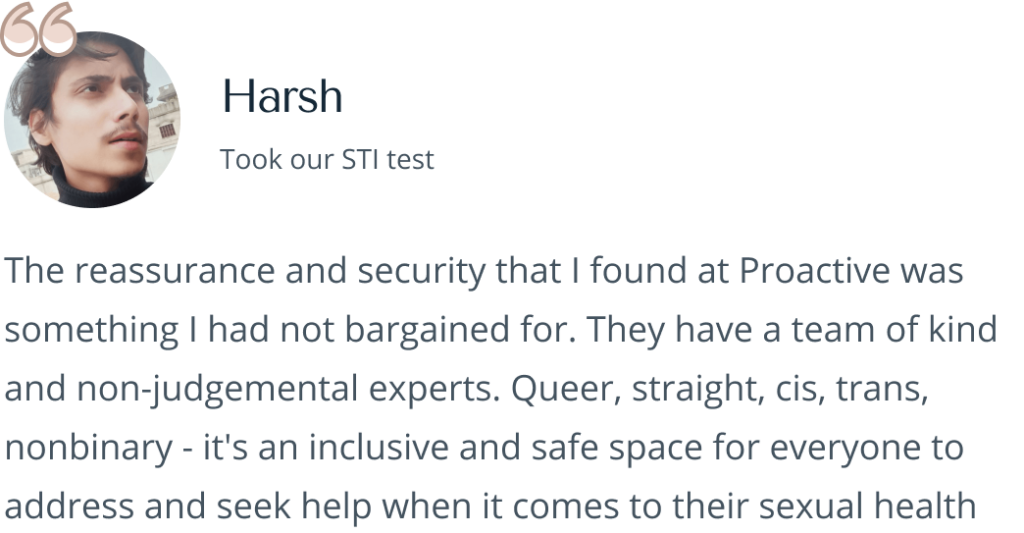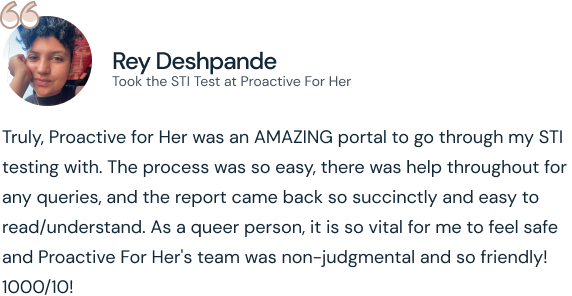
Around 6% of the adult population in India are diagnosed with STIs every year – resulting in infertility if not treated on time

Hear from people like yourself.

.
Basic
Advanced
Advanced+
HIV 1 & 2
Antibody + p24 4th/5th Gen test
Syphilis
Antibody test
Chlamydia
Qualitative PCR (urine sample)
Gonorrhea
Qualitative PCR (urine sample)
Hepatitis B
HBsAg ELISA
Hepatitis C
Anti HCV ELISA
Herpes 1
HSV-1 IgG, IgM
Herpes 2
HSV-2 IgG, IgM






What’s the process?
01
Get tested today by selecting the panel that’s right for you
02
Have your sample collected from home or walk-in to a lab near you.
03
We’ll send you an easy to understand and insightful e-report
04
Get a 1-on-1 complimentary consultation after your test results
PROACTIVE CARE
beyond check-ups
Full Body Check-up

PCOS Testing

Frequently asked questions.
CALL
+91 — 9882080808
EMAIL
connect@proactiveforher.com
© 2022 Proactive for Her. All rights reserved.







